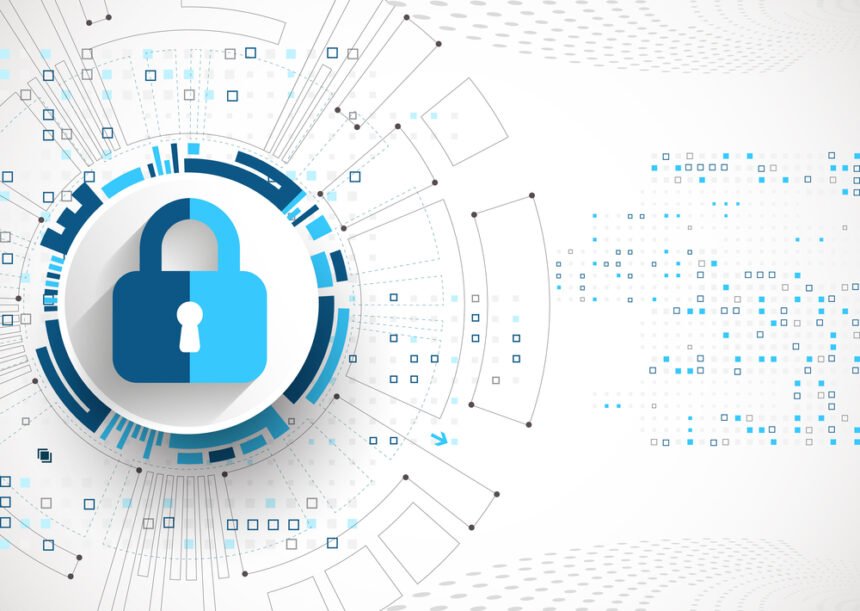Cybercrime is at an all-time high. Around 30,000 websites are hacked every day and 64% of businesses have been victims of a cyberattack.
This means that businesses need to take stronger precautions to protect against data breaches these days. Data security and, more generally, cybersecurity constitutes one of the most pressing digital issues for modern businesses and is, in many ways, the other, less positive side of digitization. The more a business becomes digital, the more digital vulnerabilities it creates for itself, particularly concerning data security and theft.
This stark reality necessitates a number of dedicated cybersecurity best practices to help mitigate the constant and growing risks of data compromise, theft and extortion. With that in mind, below are 5 ways to immediately improve your data security.
Consider Switching to a Data Center
For many businesses, and especially SMEs, cloud data storage seems like the most obvious and straightforward option. Cloud storage is cheap, widely-used and, to varying degrees, secure. But there are more secure options.
Dedicated data storage companies such as TRG Data Centers offer businesses and individuals robust off-site data storage that is professionally guarded against cybersecurity threats, unforeseen system catastrophes, natural disaster, fires and other catastrophic data loss. A data center is a good option for growing businesses with growing data storage and management needs.
Institute Multi-Factor Authentication
Most large companies online make use of two-factor identification, both internally and with their customers. If you are an Apple user, for instance, your Apple ID is widely used to help you access your account and applications. Security questions when you access your online banking information are another example of multi-factor authentication. Many businesses and organizations, however, continue to rely on single-factor methods.
Single-factor authentication creates an immediate data vulnerability because cybercriminals only need one set of information to access a system, and one piece of info is far easier to phish and snoop for than two. The more steps a user has to go through before being granted access to a system or particular information, the more likely you are to fend off unauthorized access attempts.
Make Cybersecurity Part of Your Daily Information Diet
When you run a business or you are an individual who spends a lot of time online, knowledge is power, and knowing about prevailing trends and threats is the best way to keep yourself and your business safe. Phishing techniques and scams, malware trends and threats, and best practices for avoiding being taken advantage of are constantly evolving. Staying up to date requires reading the publications and conversations where all of this is discussed.
A great way to keep abreast of the goings-on and changes in any niche or industry is to make use of a news aggregator. These allow you to create dedicated news categories and add whatever publications to them you see fit. Applications like Feedly, for example, collect all of the up-to-date and recently published articles from your publications lists and curate it all in an easy-to-use centralized library. Doing this with cybersecurity is a good way to stay ahead of the curve.
Invest in a VPN
A virtual private network does two things that immediately improve your personal and data security online: it obscures your IP address and it encrypts data you send and receive online. These are especially important if you are using open networks with little to no privacy protections in place. It is surprisingly easy for people with even a small amount of internet protocol understanding to hack unsecured systems and intercept data.
There are free and paid-VPN services online that can add an additional layer of security to your business and general activity online.
Educate Your Employees
If you run a business, your employees constitute your biggest data vulnerability. Whether due to a lack of understanding of the threats, carelessness, or both, your personnel are very often the conduit through which infiltrators and criminals gain access to your data. An employee might unwittingly share sensitive information with a phisher, believing them to be a legitimate vendor or customer. They might access highly sensitive company data with a personal device while working from home or in a restaurant or cafe.
One of the best and easiest ways to immediately fortify your data is arming your employees with the ability to help you protect it.
Conclusion
Cybersecurity best practices are not always obvious, especially if you are not a strictly digital business with a high degree of digital savviness. Some data security improvements require time and money, but others are as simple as educating yourself, your employees, your family members and anybody else who constitutes a potential data vulnerability. Whatever your needs or budget, if you implement the above five cybersecurity best practices today, you will immediately improve your data security.

